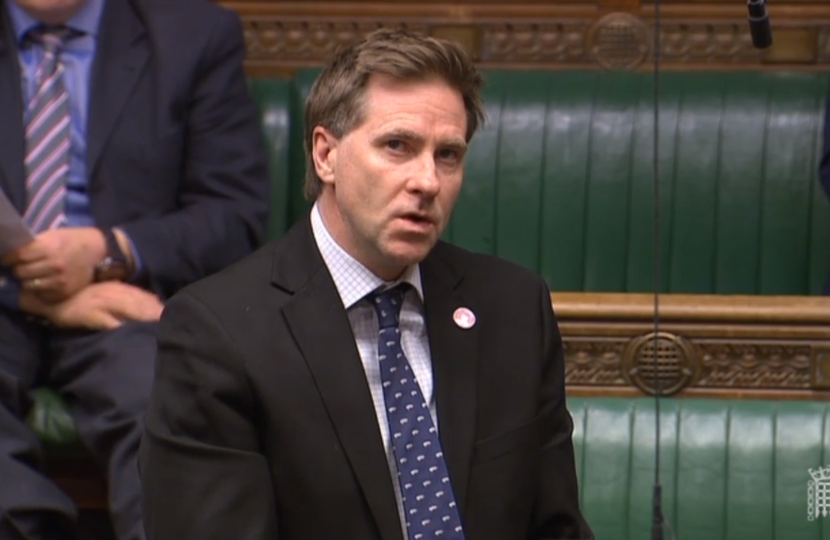Steve Brine spoke in the House of Commons today to emphasise the need for calm over the COVID-19 outbreak in the UK. Steve also asked the Health Secretary Matt Hancock, whether the media had some level of responsibility over the outbreak to keep panic and misinformation to a minimum. The Secretary of State for Health was giving an update to the House on plans for dealing with the outbreak. As of Wednesday, 3rd March, there have been 51 confirmed cases of the virus, none of them are in Winchester.
The UK Government and the Devolved Administrations have published an action plan that sets out how we have responded so far, and intend to respond going forward, and this can be viewed here: www.gov.uk/coronavirus
The plan sets out how the Government will deal with this incident; the actions currently underway; and an action plan for dealing with this outbreak going forward.
The Government response to COVID-19 is guided by the best scientific advice, the international situation, the advice of organisations such as the WHO, data modelling based on the best available evidence and the recommendations of our expert bodies across the UK.
Currently, the UK is in the Contain phase of the plan, which is where we have been since the Government first learnt about COVID-19 at the end of 2019. The Contain phase is about detecting and isolating the early cases tracing their close contacts and preventing the disease from taking hold in the UK for as long as is reasonably possible. This has also given the NHS time to ramp up its preparations.
Steve Brine, a former Public Health Minister said: “Experience here suggests that these outbreaks are about cool heads and timing and I would suggest that the Minister and his Chief Medical Officer and his Public Health Minister have been exemplary in both of those things. Would he agree that the media have a responsibility here? You don’t release everything in the locker at once and that’s not about the Government being slow to this, which is about the Government having a plan, and what the Government have set out today is a very clear, a very strategic and a very staged plan to do what’s needed, when it’s needed, in the national interest. ”
More Information…
Symptoms of coronavirus
The symptoms of coronavirus are:
- a cough
- a high temperature
- shortness of breath
But these symptoms do not necessarily mean you have the illness.
The symptoms are similar to other illnesses that are much more common, such as cold and flu.
How to avoid catching or spreading germs
There are things you can do to help stop viruses like coronavirus spreading.
Do
- cover your mouth and nose with a tissue or your sleeve (not your hands) when you cough or sneeze
- put used tissues in the bin immediately
- wash your hands with soap and water often – use hand sanitiser gel if soap and water are not available
- try to avoid close contact with people who are unwell
Don't
- do not touch your eyes, nose or mouth if your hands are not clean
Check if you need medical help
NHS 111 has an online coronavirus service that can tell you if you need medical help and advise you what to do.
Use this service if:
- you think you might have coronavirus
- in the last 14 days you've been to a country or area with a high risk of coronavirus – see our coronavirus advice for travellers
- you've been in close contact with someone with coronavirus
Do not go to a GP surgery, pharmacy or hospital. Call 111 if you need to speak to someone.
How to self-isolate if you're asked to
If there's a chance you could have coronavirus, you may be asked to stay away from other people (self-isolate).
This means you should:
- stay at home
- not go to work, school or public places
- not use public transport or taxis
- ask friends, family members or delivery services to do errands for you
- try to avoid visitors to your home – it's OK for friends, family or delivery drivers to drop off food
You may need to do this for up to 14 days to help reduce the possible spread of infection.
Read the Government's plan to tackle COVID -19 here
See more NHS advice on the virus here


